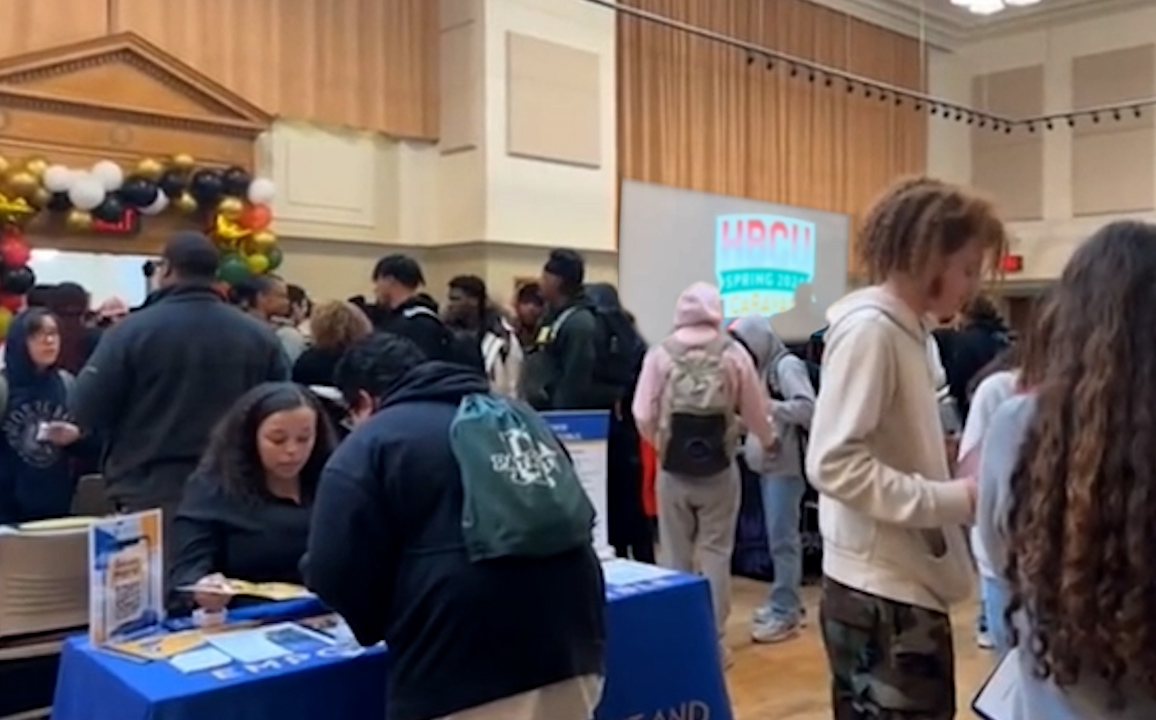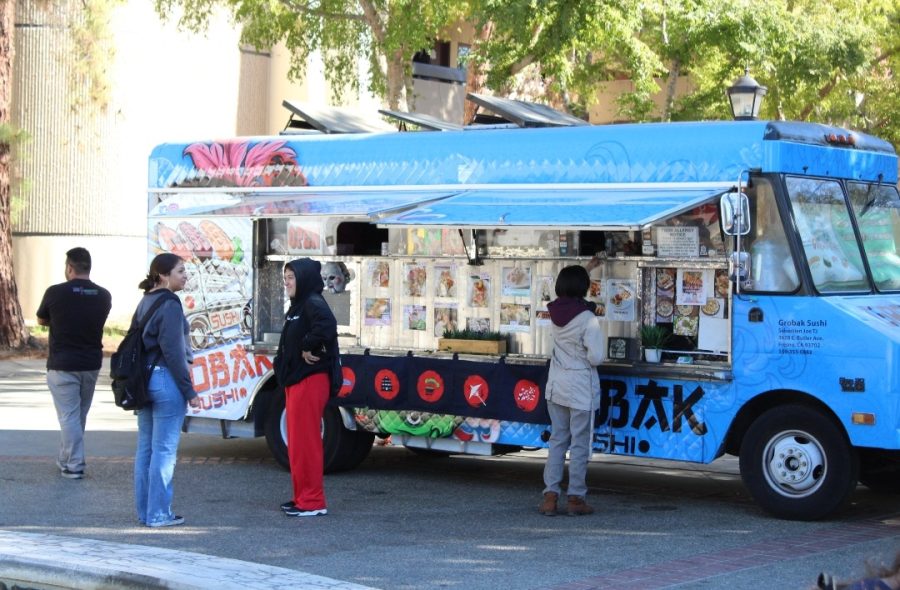In lieu of Hispanic Heritage Month, important Hispanics come to mind: Cesar Chavez, a Mexican American labor activist and leader of the United Farm Workers Coalition. He fought for the rights and labor conditions of migrant workers in the 1960’s.
Then there is Jorge Ramos, the number one news anchorman for Univision Communications, Inc. He is watched by an audience 10 times greater than CNN’s and has been voted Time Magazine’s Top 25 most influential Hispanics.
There is also Ruben Navarrette- central valley born, Harvard educated, and the first Latino syndicated columnist in the history of the Fresno Bee’s newspaper.
Last, but not least, there is well-known comedian, Mr. Paul Rodriguez. He is a part-time writer, producer, actor and director. Born of migrant parents, he has performed for well over 1 million people world-wide and has also been voted one of the most influential Hispanics in America. He was awarded the Ruben Salazar Award- an award given to him by the National Council of La Raza.
As a comedian, his role within the Latino Community has been through laughter, but his views on politics and the stance of Latinos in the United States have had a more serious tone. As a Central Valley native, he recognizes the strengths and faults of the Hispanic population in the U.S. and wishes that more would “know their history”.
As a Mexican-American, Mr. Paul Rodriguez’s perspectives on the Latino population are highlighted so as to encourage them to use their “tremendous power” in light of Hispanic Heritage month.
“I always try to bite off more than I can chew” he began about his current projects. “But, if I can have a positive influence in anything, I would start in a history class in East, Los Angeles. There have been many years of errors and omissions and knowing our history is key to establishing our ways” he said in response to Hispanic Heritage Month.
Hispanic Heritage Month is more than taking a look at the impact Hispanics have made through the course of history. It is a look at the contributions, values, culture and traditions they have instilled in the American Kaleidoscope.
For one full month, the United States celebrates the culture and traditions of Hispanic-Americans whose roots can be traced back to Spain, Mexico and all Spanish-speaking nations of Central America.
September 15th was chosen as the starting point for the celebration because of the anniversary of the independence of five Latin American countries including Costa Rica, El Salvador, Guatemala, Honduras, and Nicaragua. Mexico and Chile celebrate their independence days on September 16th and 18th.
In September of 1968, Congress authorized President Lyndon B. Johnson to proclaim National Hispanic Heritage Week. In 1988, it became a month long celebration starting on September 15 – October 15.
To date, there are approximately 44 million Hispanic-Americans making them the largest minority group present in the United States. It is estimated that by the year 2050, 1 in every 4 Americans will be of Hispanic origins.
“We are vast in numbers, but the few of us [Latinos] that become successful have bastardized our culture” Paul explained. “We are losing our values as a people and for some reason, many of us carry self-hate and self-anger.”
One of the important characteristics present in Hispanic-Americans has been their contributions to America’s core values. Unfortunately, “We are only big-hearted people with our own families” Paul explained. “Latinos work very hard and there is much admiration and respect for that. But the ideology behind how we have become successful is more important” he stated. The list of prominent, well-known and respected Hispanics is endless. The numbers indicate that as a group, they are growing in numbers. However, the black cloud of immigration has instilled fear in many Latinos; much of what the Mexican government can be held accountable for.
“Mexico has depended on the United States as a safety-valve for too many years. It certainly doesn’t have an immigration problem, but there are no opportunities there” he explained.
Paul was born in Sinaloa, Mexico and stated that he and his family migrated to the United States because they were “starving” there. “The right is on the government in Mexico for their sons, daughters, and politicians to stay there and address these important issues.”
The most pressing issue facing many Latinos in the United States has been deportation and the funding going towards the building of a border between the United States and Mexico lead by the Minutemen Project. Their attempt is to put a stop on amnesty. “It is upsetting to me that many of the individuals I see supporting the Minutemen Project are Hispanics. They are ignorant. It really comes down to who took whose land first.” He explained.
For this same reason, he believes that Latinos who get into a position of power should “not forget why they are there” and should make every attempt to take full advantage of their education.
Paul did not graduate from high school, but after serving in the Air Force, came back to Los Angeles to finish his high school degree. He then went to Long Beach City, then through the Cal-State system to finish his degree. Paul has made generous donations to the Hispanic Scholarship Fund for the past 15 years and has admired the dedication and work of students attending junior colleges. Many of these students go for the blue-collar jobs which are essential and the most abundant tying a community together. “School is not a job” he stated. When in school, one has to ask themselves: “Why am I here?”
Another problem with Hispanic-Americans is poverty. Statistics show that 22% of Hispanics suffer from poverty, and this number is not reflective of the illegal immigrants present in the United States.
“There are 400 Fresno’s all over California. You cannot find one where Hispanics are not the majority”. Paul explained. Much of the poverty has lead to Latinos being involved with gangs and many parents have not taken active control of the lives of their children. “When I see children running with guns, I ask myself, ‘Where are the parents? I always make sure to tell youths in prisons or involved in gangs, that they don’t see old gang-bangers.’ Reason being: they are killed or imprisoned beginning at youth. Sadly, much of Latino’s gang-related actions involve the deaths of their own “family and friends.”
Paul assures that regardless of his views on Hispanics in America, the numbers and strength of their role in the United States is incalculable and could be strengthened if they “are as generous to others as they are to themselves and their immediate families” he said.
Much of Paul’s comedy nowadays addresses important issues within the Latino community, but he assures that the purpose of his comedy is to “entertain and to get laughs. There is no blueprint for becoming a comedian. It really comes down to wanting something bad enough and willing to work hard enough for it” he said.
His advice and words of wisdom to Fresno City Students and those celebrating Hispanic Heritage Month: “find something that you love doing and make good money. God didn’t give us all glamorous jobs, otherwise, we’d all be Selma Hayek’s” he stated. Laugh. Also, “Don’t pursue something to please someone else. You have to sit down and ask yourself, ‘how can I make an impact and leave this world leaving it a better place? How are you applying self-love? Find out what you do better than the average person and go for it”.
As Latinos, as a culture, and as a group of individuals in America, Paul states that “Success is being healthy and being surrounded by people that [you] love”. As far as Hispanic Heritage Month, Paul states that the success of Latinos lies in their generosity to their families and to those around them.
“If Latinos were an
ything like Jehovah Witnesses such that they had the determination, compassion, love, and perseverance; If Latino’s had this tenacity as a group, we’d be far ahead than how far we have come.” And certainly, Latinos have come far- the challenge is to accept that there is always room for improvement.
Hispanic Heritage Month recognizes the achievements of those whose lives have proved fruitful and successful, Paul Rodriguez being among them. The hope is that the successes and strengths of Latino leaders are followed by the youth of our tomorrow, and in spite of the challenges that Latino’s face- we overcome for a better tomorrow.



